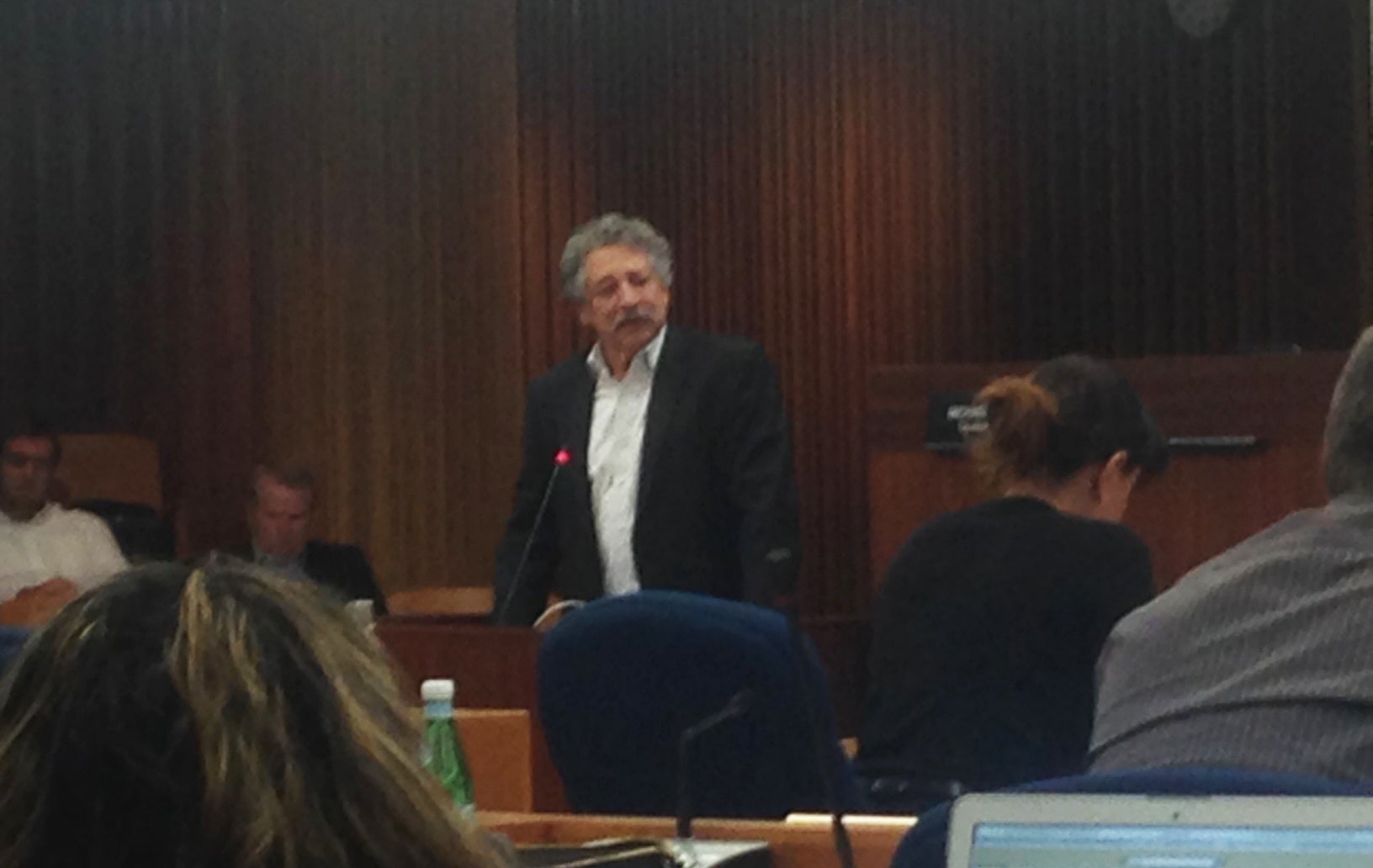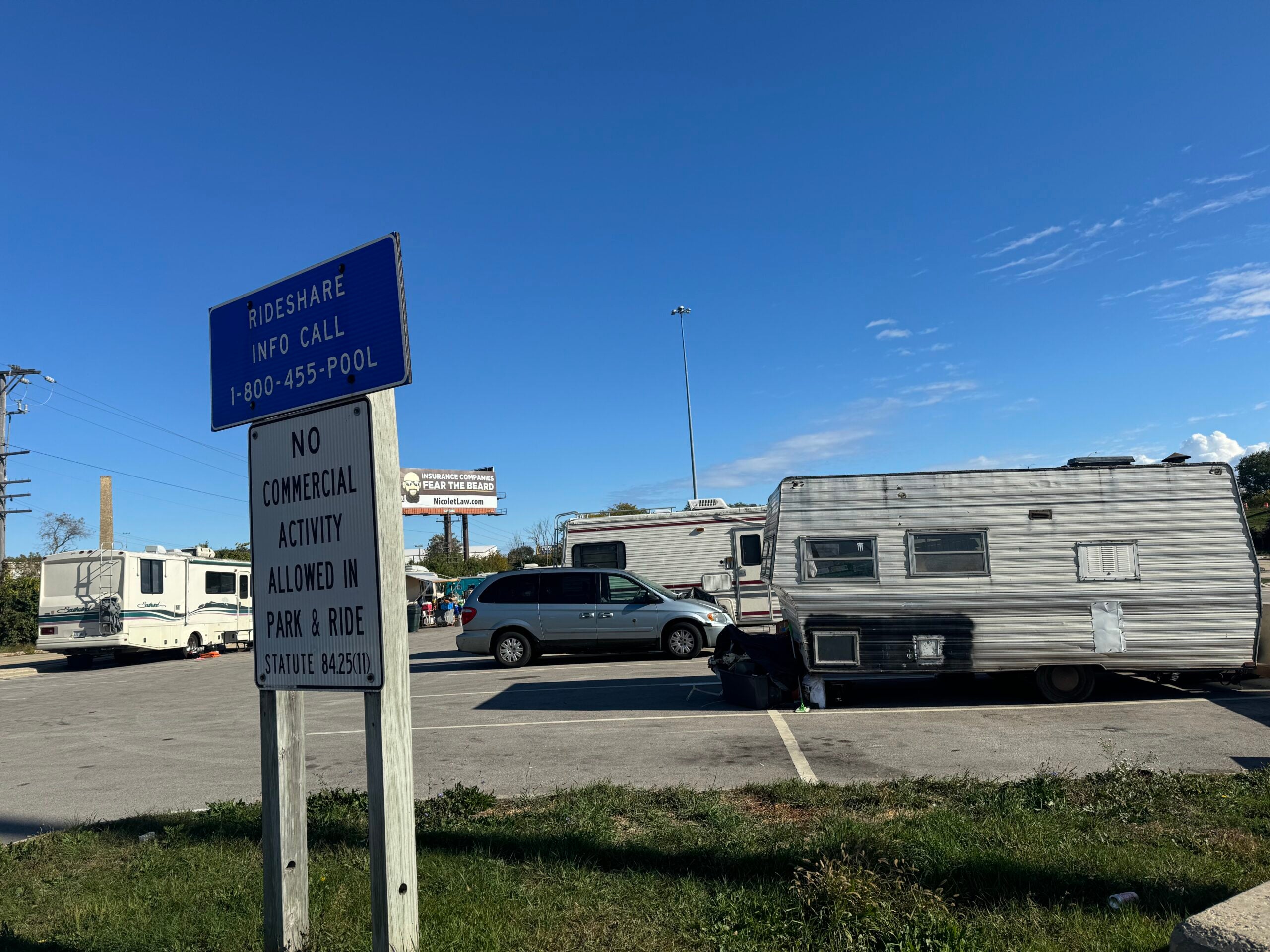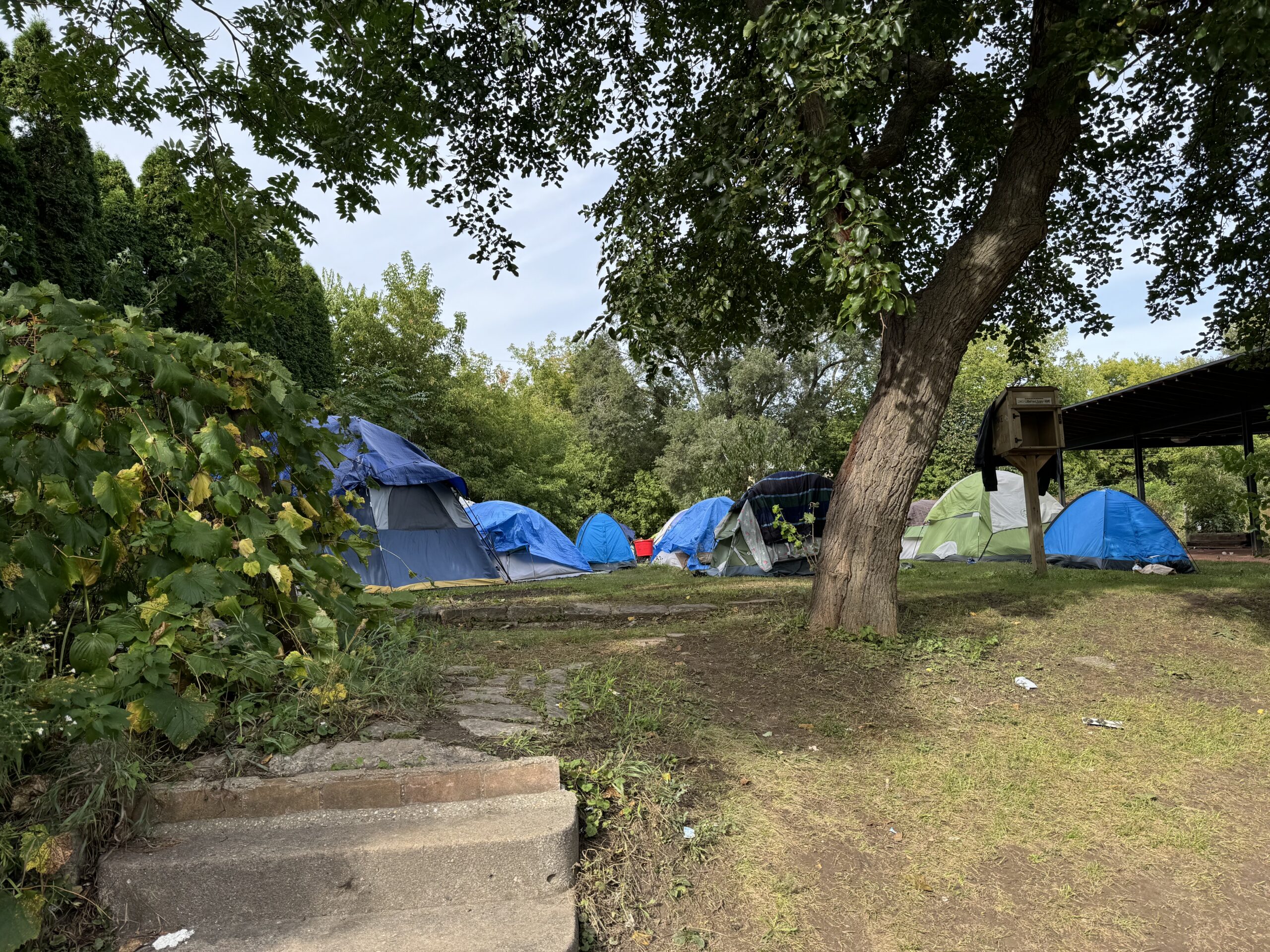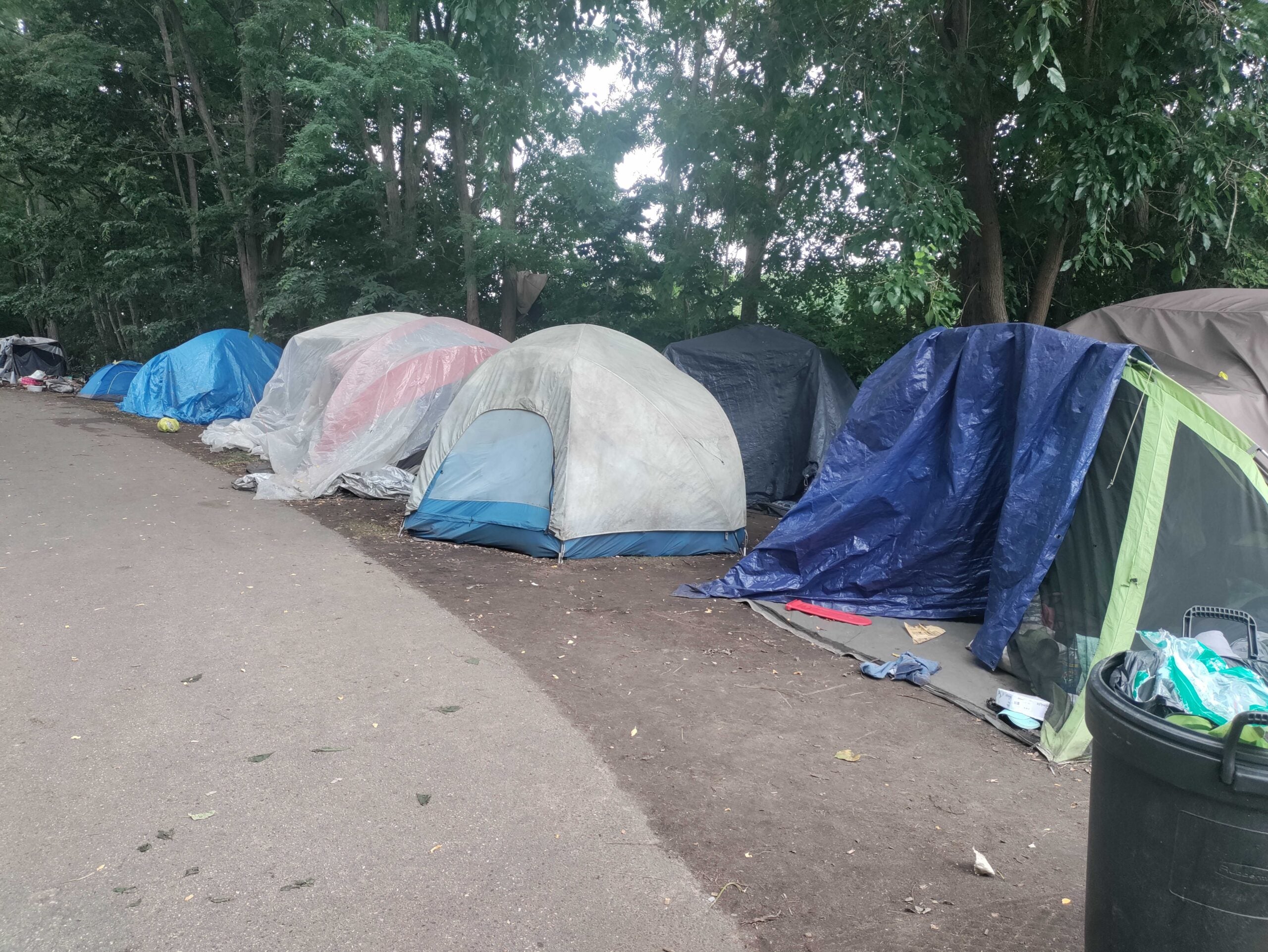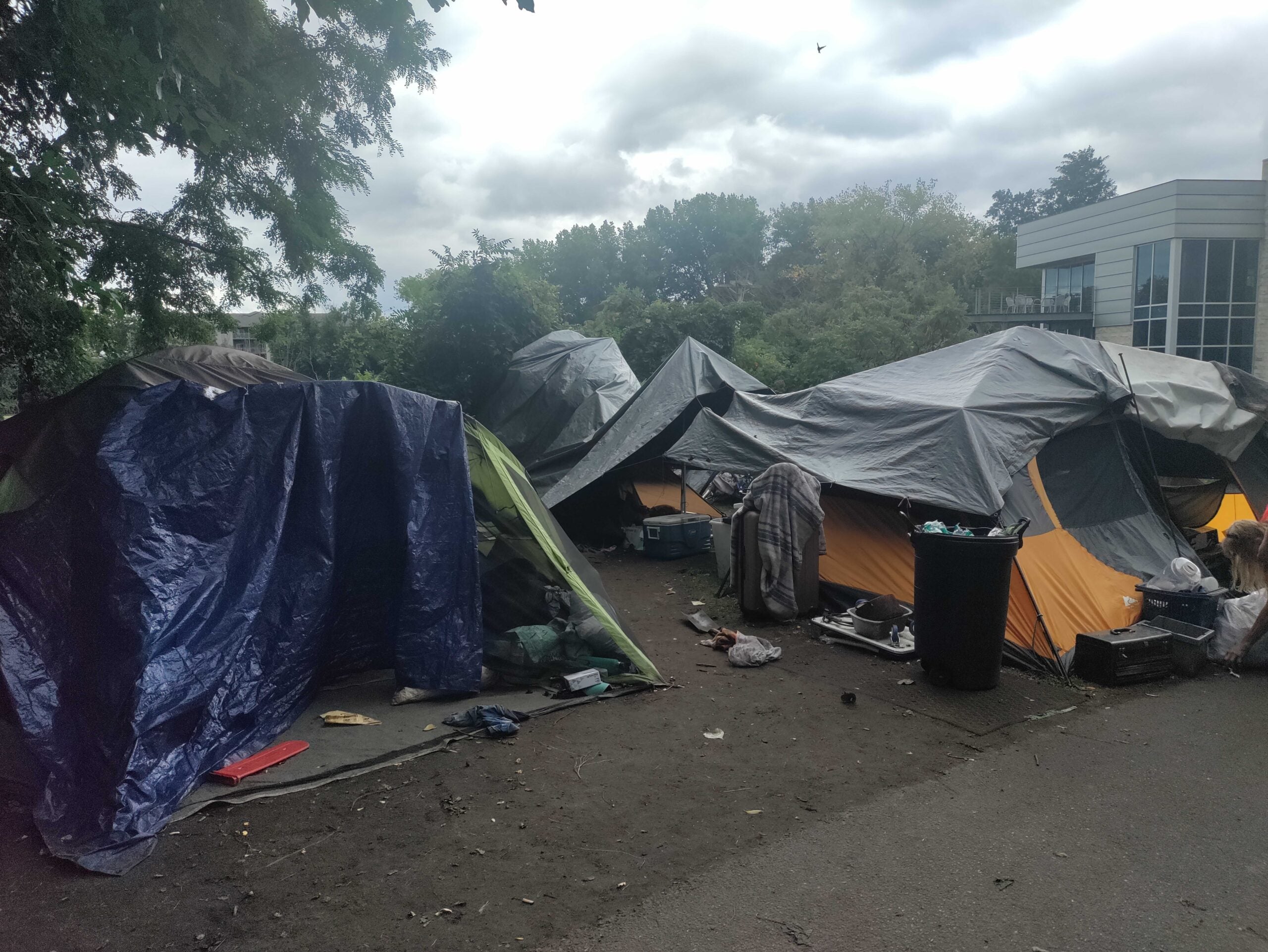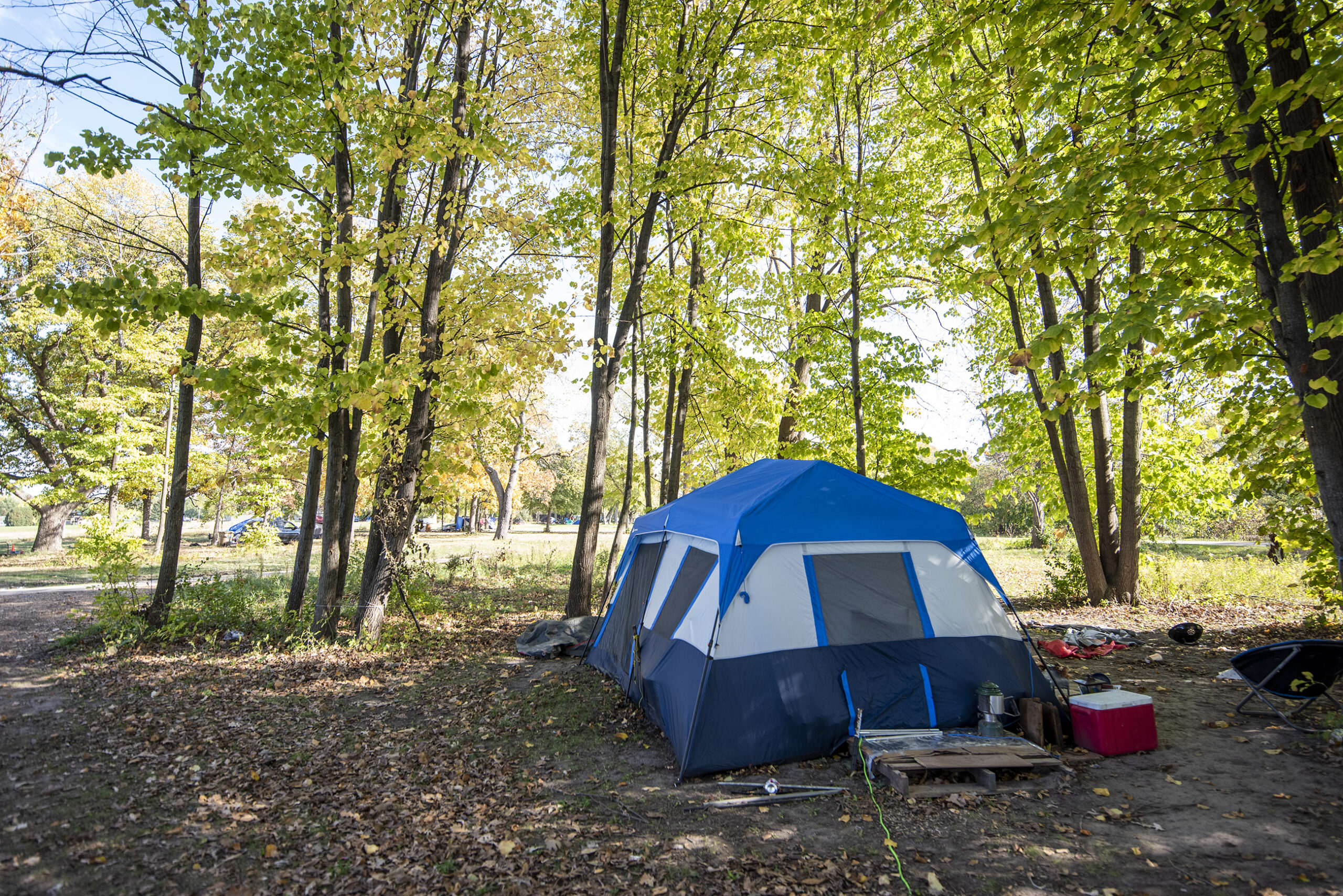The chants of protestors outside the City County Building carried upstairs into the Madison Common Council meeting Tuesday night as members voted down a controversial ordinance affecting the city’s homeless.
Mayor Paul Soglin unveiled the Downtown Pedestrian Protection Ordinance in late July. It would have banned sitting on downtown sidewalks from 5:30 a.m. to 1 a.m. and using public benches to store property for more than an hour. First time violators would have received a $100 ticket. Strike two would be $250.
“I don’t have a problem if someone wants to amend all the fines in here and put them at one cent,” said Soglin towards the end of his 20-minute defense of the ordinance Tuesday.
Stay informed on the latest news
Sign up for WPR’s email newsletter.
No amendments were made and the council voted down the proposed ordinance 15-1.
Critics had called the proposal discriminatory to the homeless.
“This ordinance targets individuals experiencing homelessness who are limited to be indoors in certain times of the day and year due to our basic shelter inadequacies,” said Karen Andrew of the First United Methodist Church in Madison. “We need not punish those who have nothing by decision makers who have a home and a place to be.”
Many of the voices against the ordinance at the meeting stressed the need for more shelter space and affordable housing in Madison.
Council member Skidmore cast the only vote in favor of the ordinance.
“I consider it an important public safety issue and I do not think it is an attack on the homeless as many have portrayed it,” he said.
Both Soglin and Skidmore echoed concerns about public safety when discussing the proposal, citing incidents of public defecation, violence and sexual assault.
“The fact of the matter is sexual assault happens in Madison all the time. It happens on campus all the time. But we only hear this administration talk about it when it advances a political agenda,” said council member Amanda Hall, one of the many voices against the ordinance.
The outcome of the vote did not come as a surprise to Soglin. He addressed many alternative plans of actions his administration would consider, including seeking out an organization to “go into the streets” and directly provide mental health and substance abuse treatment downtown.
He also called for help from the private sector.
“Landlords have got to step up and have to come forward and set up a couple of units. They’re not going to make all the money in the world and some of these individuals may be troublesome tenants,” Soglin said.
In addition to banning the use of benches for storage and sitting on sidewalks, the proposed ordinance would have banned sitting or sleeping outside of any city office building between 5:30 a.m. and 11 p.m.
Last week, a ban on sleeping outside the City County Building went into effect. The building had long served as an unofficial homeless shelter in Madison.
Wisconsin Public Radio, © Copyright 2024, Board of Regents of the University of Wisconsin System and Wisconsin Educational Communications Board.

